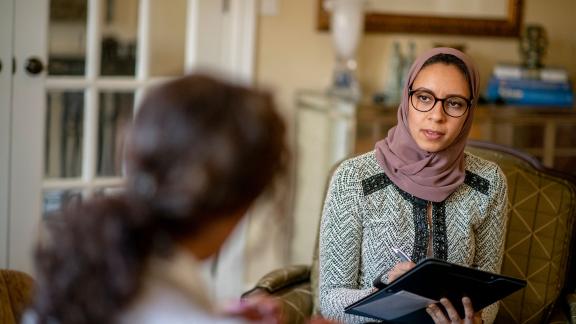Two years on, the environment remains hostile

The Windrush scandal unearthed in 2018 rocked the nation. To mark Windrush Day on 22 June, Angela Spence, trustee of the Refugee and Migrant Centre, reflects on a personal experience and the progress she believes needs to be made two years on.
“Have you lived in this country for the last 12 months?”. A reasonable question until you realise, because there is no privacy, that the person in front of you and the one behind you has not been asked that question. And why might that be?
This question was asked when I presented for an appointment at the eye hospital in my local NHS trust hospital and was tagged on to questions asked to confirm my details/identity.
Context. I am a black woman and the others I refer to above are white. A white questioner and white patients.
On no previous visit had I been asked such a question and, taken aback, I replied “that’s a new question” providing an opportunity for the receptionist to explain why this question was being asked, but she gave no response. I responded in the affirmative and took my seat.
This simple question prompted much action on my part because I was concerned by what appeared to be differential treatment on the basis of my skin colour. I undertook my own non-scientific research of colleagues and friends who had used a range of services at the same hospital and only one other had encountered that line of questioning when she too attended the ophthalmology clinic. And she was black.
I wrote directly to the chief executive: a) to bring the matter to his attention and b) to seek clarification on hospital policy and its application across the hospital estate.
My penultimate comment to the chief executive was, “if there is a policy, surely for there to be no appearance of bias, conscious or otherwise, it should be applied without prejudice. Similarly, the trust should be raising awareness about this change.”
The correspondence were many: 29 exchanges including email, telephone conversations and face-to-face meetings on the hospital site in more than a seven-month period. I was told the question was asked of everyone, when that plainly was not my experience or indeed the experience of others I spoke to at the time and subsequently. So I challenged that. I offered advice on maintaining dignity and privacy at reception points. Advice on the tone and content of their publicity material. Advice on the location of publicity material. Advice on the journey of patients depending on their “status”. Advice on training to ensure staff were not using their discretion about who they should or should not ask the question about their “status”.
Under current English law, hospital care must be paid for if you are not “ordinarily resident” in the UK unless an exemption applies, such as receiving care in an A&E department, which is free.
I undertook research to support my understanding of the landscape and learned that the concept of charging overseas visitors has a long history in this country. The mechanisms to enforce these charges have been intensified as a result of the government’s hostile environment policy, which prevents hospitals from providing some types of care to people who cannot provide the “right” documents, but does not excuse them from their statutory equality duty.
My dad arrived in the UK from Jamaica in 1957. My mum came in 1960. They met in the UK, married and raised five children. They have since been labelled the Windrush generation though the ship the Empire Windrush, carrying passengers who were born British subjects in the Commonwealth and invited to rebuild post-war Britain, docked at Tilbury Docks on 22 June 1948. The ship remained in service until it sank after catching fire in 1954, perhaps foretelling the fate that would befall the Windrush generation under the hostile environment policy.
The Windrush scandal, as it has become known, sparked by the work of The Refugee and Migrant Centre and exposed by the Guardian newspaper, erupted in 2018 when we learned that people who answered the call to rebuild the country were wrongly detained, denied their legal rights, including access to the NHS services and their NHS jobs, leading to deaths, desperation and poverty. Some were wrongly deported because they could not provide the “right” documents. People legally settled here for many decades were being treated as less than human.
We have since had a government apology but two years on, work continues at a snail’s pace to rectify the situation and while that is happening, some people caught up in the Windrush scandal have sadly died without receiving the justice deserved for such appalling and inhumane treatment.
As Sir Simon Stevens said, as an embedded part of society, the NHS is both part of the problem and part of the solution. As a black woman, I was asked about my residency in the country of my birth. Others attending the same hospital department were white and were not and I know not the place of their birth – but that matters not.
If black lives matter in the NHS then all black lives must matter, whatever the colour of their passport. As my experience shows, even those of us with a British passport are one bureaucratic question away from exclusion.
Angela Spence is a trustee of the Refugee and Migrant Centre.



